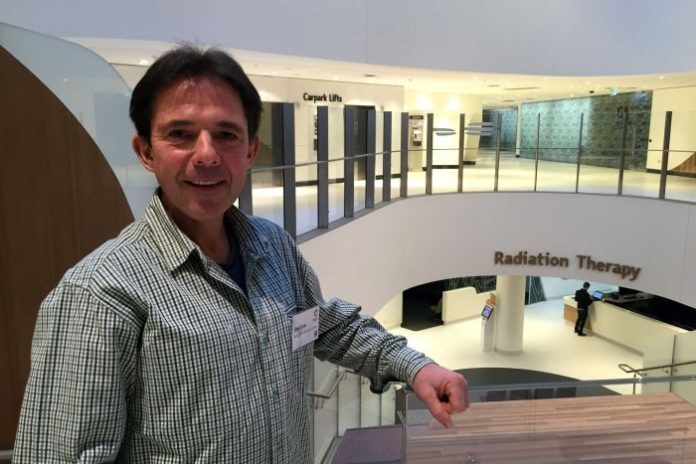Glen Cloke was supposed to die at 14.
At least that was the prognosis his parents were given before doctors at the Peter MacCallum Cancer Centre took a bold step in his treatment, and gave him an adult’s dose of radiation therapy.
Soon after, his body began to respond positively, and his parents cancelled the Disneyland trip he had requested as a dying wish.
Almost 40 years later, Mr Cloke is one of the Peter MacCallum Centre’s longest surviving patients since getting his diagnosis.
He and 29 other cancer survivors toured the centre’s new $1 billion purpose-built facility, which is located inside the new Victorian Comprehensive Cancer Centre building.
“This place means a lot to me,” Mr Cloke said.
The centre’s chief executive Dale Fisher said the facility was designed with therapeutic aesthetics in mind.
“It’s a sanctuary for family as well — East Melbourne [the old facility] was not purpose-built for cancer care, but we’ve been able to design this building specifically for the patients needs,” she said.
Peter Mac’s first ward opened in 1954 providing desperately needed inpatient service.
There are 56 chemotherapy chairs and 96 patient rooms in the new building, 76 of which are single-bed rooms.
Each bed is fitted with a patient entertainment unit, and the rooms have almost floor-to-ceiling windows allow for ample natural light inside.
“Cancer treatment can take a long time so the view, light and the beautiful amenity will really help people through their journey,” Ms Fisher said.
A chute system allows staff to send blood samples and receive medication from anywhere in the complex, including from the Royal Melbourne Hospital on the opposite side of Grattan Street in Parkville.
“The technology in the building is state of the art — all electronic systems will speed up testing and make treatment more efficient, and patients will benefit from technology that is within the building’s walls,” Ms Fisher said.
There are eight radiation bunkers in the basement level of the building, each with an LCD ceiling display for patients to face while receiving radiation therapy.
Cancer research has also been allocated 15,000 square metres in the new building.
The current Peter MaCallum Cancer Centre patients will move into the new building from June 23, and the centre will be operational on June 24.




